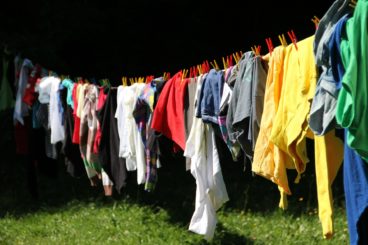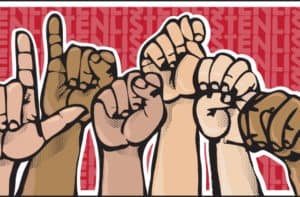
“Jake” was a small boy for 15 years of age. It was difficult to imagine the severe emotional disturbance that led to his placement in a residential treatment center, but it was also difficult to imagine the abuse experienced in his home. I had worked at the center for over three years on a part-time basis as a houseparent, first pursuing a bachelor’s, then a master’s degree in psychology. By this point, I had finagled a night position, working Saturdays and Sundays, with occasional overtime to supplement my income. Third shift was my choice because of the time available to study.
The most onerous third shift responsibility was laundry. The sheer volume of clothes that 23 adolescent males could wear in the course of a day was amazing, if not at times overwhelming. In addition to monitoring the boys, laundry could become an all-night job, finishing just as the shift ended at 7 a.m. Needless to say, there was little time to worry about the right temperature of water or the dryer setting for any one particular piece of clothing.
The most onerous third shift responsibility was laundry. The sheer volume of clothes that 23 adolescent males could wear in the course of a day was amazing, if not at times overwhelming.
I arrived one Sunday night just before bedtime, to “get report” on the events of the day. One staff member mentioned Jake. His mother had visited and taken him off-campus that day, a rare show of involvement with her son. While on that visit, she purchased a shirt for him at a local department store. Even though the item was bargain basement quality, he refused to part with it, for fear that it would be ruined in the wash. In a few minutes, as the boys talked, and dawdled, and gradually made their way to bed, I stopped Jake.
“I understand you have a new, special shirt,” I said casually. Solemnly, he nodded yes. “If you want me to,” I said, “I’ll put it in a load of laundry that gets extra special care.” Again, a solemn nod of yes; he wandered to his room, and returned with a blue short-sleeved shirt with red stripes. In the wee hours of the morning, feeling more than slightly foolish, I ran that shirt through the washer and dryer by itself, and placed it on a hanger for Jake to retrieve in the morning, instead of folding it and placing it on the pool table where clothes were usually left for the boys to claim.
The week went forward, as weeks still seem to do, ready or not. After all, I was preparing for my purpose in life. I had “outgrown” my job; I stayed because of seniority, the flexible schedule, and a sense of establishment there, as well as enjoying my coworkers. My real contribution would be as a therapist, not as a part-time laundryman!
The next Saturday night, I walked through the door to the dayroom, where the boys were watching a movie. Jake saw me, and leaving the group, went down the hall to his room. When he returned, in his hand was the blue short-sleeved shirt with red stripes. “For the special load,” he said. I nodded agreement, and put it on the table behind me. Making rounds after “lights out,” however, I had a surprise. Jake’s two roommates were waiting, each with a shirt for the “special” load.
Making rounds after “lights out,” however, I had a surprise. Jake’s two roommates were waiting, each with a shirt for the “special” load.
Well, the outcome was predictable. Over the next few weeks, the “special load” on weekend nights grew and grew. By the time I left a year later, I was washing a special load each night I worked, encompassing everything from dress shirts and pants to torn t-shirts and ragged blue jeans. If a boy had not included something for the “special load,” he would often run to the huge hamper in the hallway and sort through clothes until he was able to find something to be washed. If I worked days, inevitably a boy would ask me, “Will you be doing special wash this weekend?” I always answered, “Yes.”
That experience is long behind me now. I left the residential facility to work as a therapist with my master’s degree, eventually returned to school, and received a doctorate in psychology. I have “succeeded” in my field: a thriving private practice, a part-time teaching position at a university, numerous publications in scholarly journals, thousands of clients served over the years. I have tried to use the talents God gave me both wisely and humbly.
Still, there are times when I become filled with my own importance. There are times when I begin to believe that my gifts are “better” or “more important” than the gifts of others. When those times occur, I try to remember the image of Christ washing the feet of the bickering disciples, a lesson in humility. I have my own image, though, that reminds me how important all gifts are.
When I look back on all that I have done in my career, I know that the most meaningful gift was given many years ago. As a professional today, I receive recognition and acknowledgment for my role. Back when I was doing laundry for 23 young boys, no one among the staff or my supervisors either noticed or cared that those boys were bringing their laundry for special treatment. I was young, naive, and self-absorbed; the gift really didn’t seem important then even to me.
Yet with time to look back and reflect, no client I have ever known, and no service I have ever performed, means more to me than Jake and his shirt, and those special loads of clothes.
James A. Cates, Jr. is a clinical psychologist and was a contributor to PRISM Magazine.


